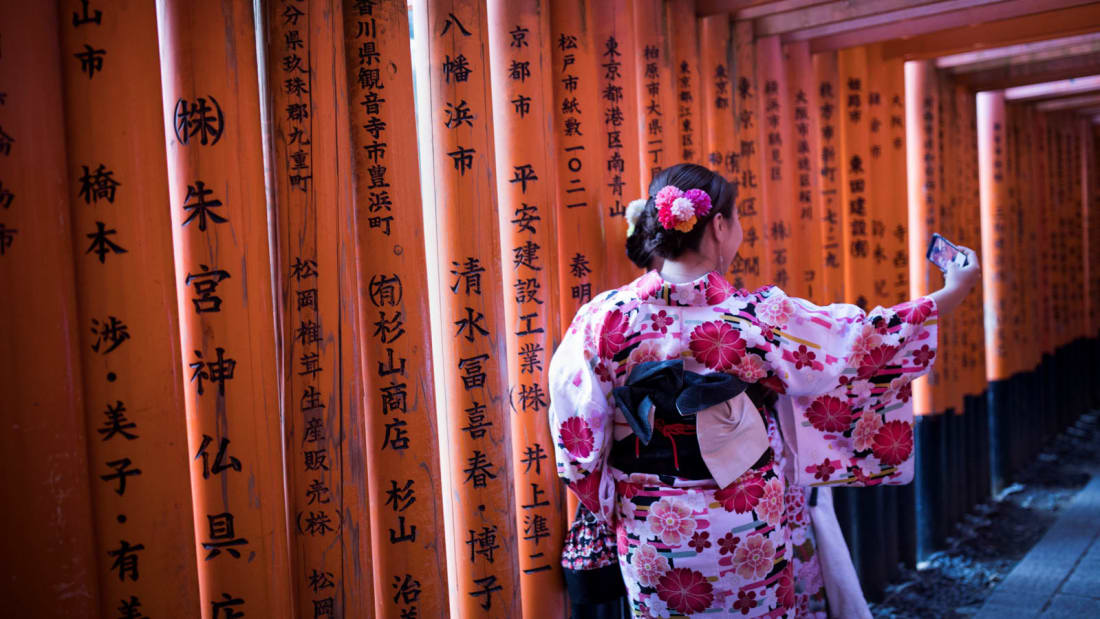2021-07-02
Travel to Japan during Covid-19: What you need to know before you go
CNN staff • Updated 10th July 2021


Editor's Note — Coronavirus cases remain high across the globe. Health officials caution that travel increases your chances of getting and spreading the virus.
Staying home is the best way to stem transmission. Below is information on what to know if you still plan to travel, last updated on July 8.
Staying home is the best way to stem transmission. Below is information on what to know if you still plan to travel, last updated on July 8.
(CNN) — If you're planning to travel to Japan, here's what you'll need to know and expect if you want to visit during the Covid-19 pandemic.
The basics
Japan was lauded for containing the virus during the first wave but has since seen a surge in cases, with a major spike in November and December 2020.
Prime Minister Yoshihide Suga announced on February 9 that all foreign nationals would be barred from entering the country, but did not specify a start date
or give details about how this would be implemented. The Tokyo Olympics are still scheduled to take place in July despite protests.
or give details about how this would be implemented. The Tokyo Olympics are still scheduled to take place in July despite protests.
Although all foreign nationals have been barred from attending the Olympics in summer 2021 and are mostly unable to enter the country, Japanese authorities
announced that they are considering testing any foreigner entering the country for the newer coronavirus variants.
announced that they are considering testing any foreigner entering the country for the newer coronavirus variants.
The upcoming Olympic Games have increased pressure on authorities to keep the pandemic under control.
Tokyo and Okinawa will be under a state of emergency until August 11, which covers the entire duration of the Games.
Three of the prefectures bordering Tokyo -- Chiba, Kanagawa and Saitama -- will also remain under a semi-state of emergency during this period.
Olympic organizers have agreed to hold events without spectators.
What's on offer
A heady mix of the cutting edge and deeply traditional, Japan remains a major draw for travelers from all over the globe. Whether participating in a traditional
tea ceremony in Kyoto, scouring Tokyo's Akihabara district for tech bargains or soaking in a hot onsen in the forests of Tohoku, this is a country that leaves its
mark on all who visit.
tea ceremony in Kyoto, scouring Tokyo's Akihabara district for tech bargains or soaking in a hot onsen in the forests of Tohoku, this is a country that leaves its
mark on all who visit.
Who can go
Japan has some of the most stringent travel restrictions in the world, with 152 countries on its prohibited list.
Visitors from Australia, Brunei, China (including Hong Kong and Macau), New Zealand, South Korea, Singapore, Taiwan, Thailand and Vietnam may enter the country,
although those traveling from China and South Korea can only arrive into the country via Tokyo Narita airport. Additionally, those traveling for study,
work or to join family (subject to visa requirements) may enter. That said, there are many exceptions and the rules change constantly. Consult MOFA for the latest information.
although those traveling from China and South Korea can only arrive into the country via Tokyo Narita airport. Additionally, those traveling for study,
work or to join family (subject to visa requirements) may enter. That said, there are many exceptions and the rules change constantly. Consult MOFA for the latest information.
Prime Minister Suga announced on January 14 that the borders would close to all foreign nationals, although there were no specifics on beginning and ending dates.
He also did not specify whether this would apply to foreign citizens with Japanese residency.
He also did not specify whether this would apply to foreign citizens with Japanese residency.
On May 24, the US State Department issued a travel warning against its citizens visiting Japan. It was a Level 4 warning, the highest on the scale.
It has since been dropped to a "Level 3: Reconsider Travel."
It has since been dropped to a "Level 3: Reconsider Travel."
What are the restrictions?
Travelers from permitted destinations must undertake a 14-day quarantine, although it is possible to request a PCR test on arrival. A negative result allows you to finish quarantine.
Those traveling under Japan's revised business travel rules will need to provide proof of a negative PCR test taken within 72 hours of departure, signed and stamped by the laboratory where it was taken. While they will not need to self-isolate, they will need to provide details of their movements for the following two weeks and not use public transport.
What's the Covid situation?
After low infection rates in the first wave, Japan has seen a sharp increase in cases, which have steadily increased since a state of emergency was lifted in March. On June 14, the country marked a total of 936 cases -- the first time the national number had fallen below 1,000 new cases since March. The government's efforts to speed up vaccinations has improved significantly, with one million jabs per day the week of June 22.
As of July 8, Japan had reported roughly 809,909 confirmed cases of the virus and 14,834 deaths.
The vaccine rollout has been slow compared with others in Asia because of a shortage of medical professionals and a lack of syringes.
To boost vaccine numbers ahead of the Olympics, the Japanese government has rolled out some workplace vaccination programs and recruited dentists,
retired doctors and others in the medical field to assist with giving them out.
To boost vaccine numbers ahead of the Olympics, the Japanese government has rolled out some workplace vaccination programs and recruited dentists,
retired doctors and others in the medical field to assist with giving them out.
The Health Ministry formally approved two Covid-19 vaccines (Moderna and AstraZeneca) on May 21. Both are approved for anyone 18 and older.
Chief Cabinet Secretary Katsunobu Kato confirmed to local media that his team is exploring options for "vaccine passports." Business travelers would be prioritized for these at first.
Daily reported Covid-19 cases
What can visitors expect?
While much of Japan remains open for business, cities are far quieter than usual and the government has the right to request the closure of businesses in areas of high transmission.
Masks must be worn in public.
Masks must be worn in public.
Useful links
Our latest coverage
Osaka is now home to the world's first -- and so far only -- Super Nintendo World, where visitors can put on virtual reality glasses and play a real-life version of Mario Kart.
Fukushima is ready for tourists again, while you can practice shirin yoku, or forest bathing, in Kyoto's Sagano Bamboo Forest.
For something a little less idyllic, there's a museum dedicated to poop in Yokohama. Or get stuck into the renowned food scene, with record-breaking snow crab and $185 steak sandwiches.
Joe Minihane, Julia Buckley and Lilit Marcus contributed to this story
source from
2021/7/10
CNN Travel
Travel to Japan during Covid-19: What you need to know before you go
URL:
Joe Minihane, Julia Buckley and Lilit Marcus contributed to this story
source from
2021/7/10
CNN Travel
Travel to Japan during Covid-19: What you need to know before you go
URL:
https://edition.cnn.com/travel/article/japan-travel-covid-19/index.html